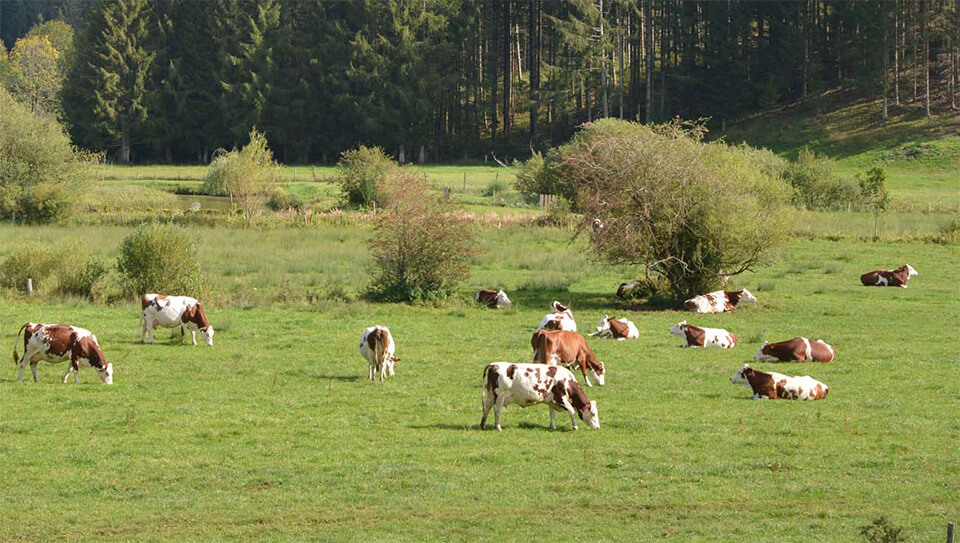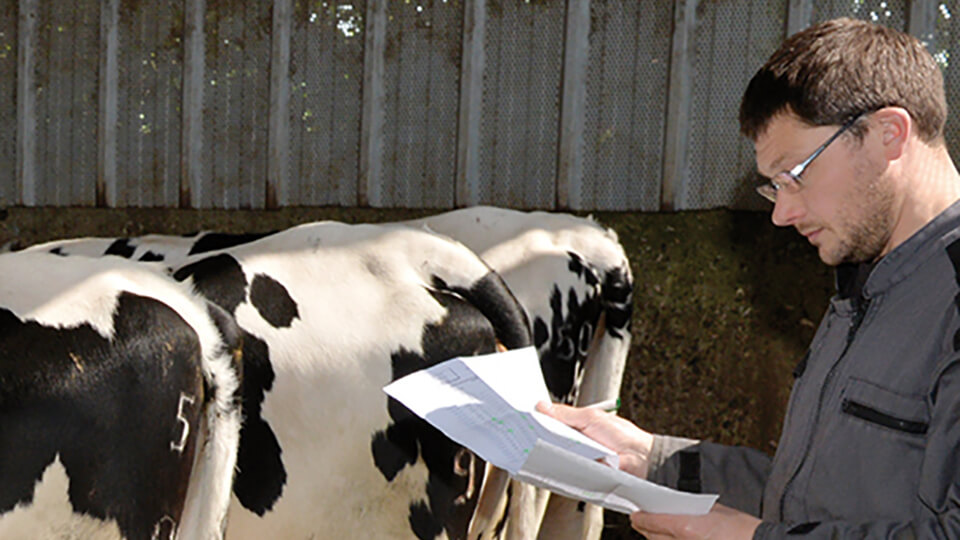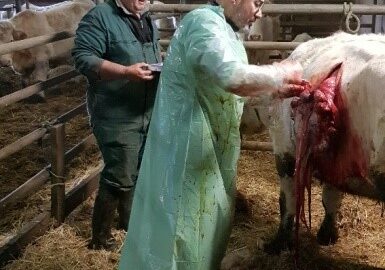Le dosage du pepsinogène sérique, un outil de gestion des strongyloses gastro-intestinales

Auteurs
Résumé
Le dosage du pepsinogène sérique a été initialement développé pour évaluer la charge parasitaire en strongles gastro-intestinaux de veaux en fin de première saison de pâturage. En permettant d’évaluer la charge parasitaire en Ostertagia, essentiellement sous forme larvaire hypobiotique, il renseigne sur le niveau parasitaire atteint à ce stade, conséquence des mesures de gestion de l’infestation parasitaire lors de la saison de pâture échue. Ce paramètre informe a posteriori sur l’éventualité de les réajuster pour la saison suivante. Il permet aussi de déterminer le traitement anthelminthique à mettre en place à l’entrée en stabulation pour garantir la santé des animaux en hiver : des animaux bien immunisés ne nécessiteront pas de nouveaux traitements avant la fin de la période de croissance. Le dosage du pepsinogène sérique s’inscrit dans une démarche qualité visant à la maîtrise optimale du parasitisme par les strongles gastro-intestinaux en élevage bovin, dans le respect des préoccupations de l’éleveur et de la prévention de l’apparition de résistances aux antiparasitaires. C’est un paramètre indispensable dans une optique d’optimisation zootechnique.
Abstract
The serum pepsinogen assay was initially developed to evaluate the parasitic load of gastro-intestinal roundworms in calves at the end of their first grazing season. The evaluation of the parasitic load of Ostertagia, principally in the form of hypobiotic larvae, provides information on the parasite load and the effectiveness of grazing season parasite management. This allows the management system to be adjusted for the next season. It also helps to determine the anthelminthic treatment required at the beginning of the housing period in order to guarantee calf health during the winter. Well immunised animals will not require further treatment before the end of the growing period. The serum pepsinogen assay is an element of quality control which aims to optimise the management of gastro-intestinal roundworm parasitism in cattle farms while at the same time respecting the concerns of the farmer and preventing the appearance of resistance to anti-parasitic treatments. It is a vital parameter in the context of optimising animal husbandry.
D'autres articles
JNGTV 2013 Page 974
Bovins · Reproduction
Efficacité des dispositifs progestagènes intravaginaux sur les taux de gestation chez des vaches laitières
Découvrez aussi nos formations
15 décembre 2025
5 jours
Bovin laitier · Bovin viande · Bovins


